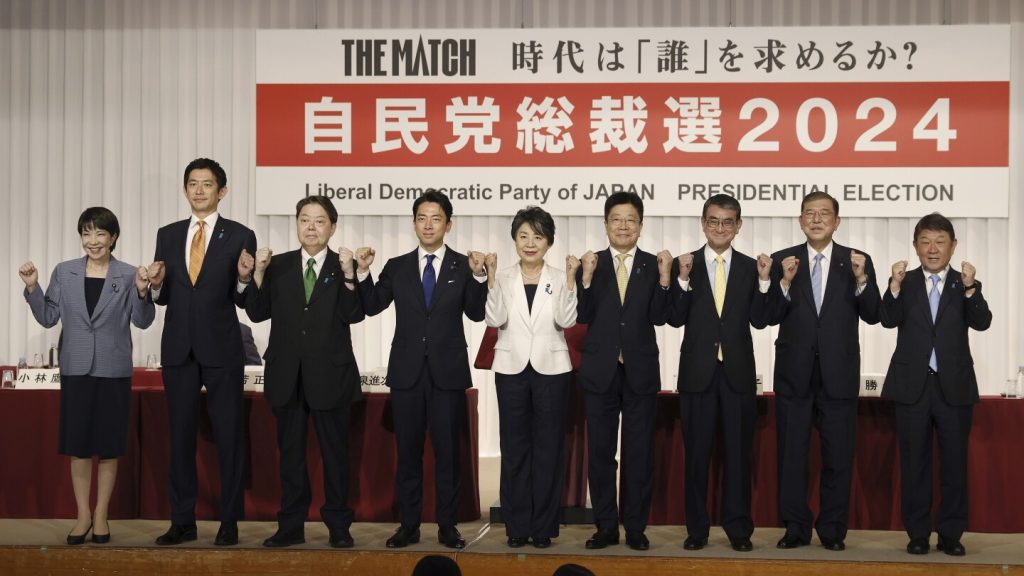The upcoming vote for the new leader of Japan’s Liberal Democratic Party (LDP) is set to determine the country’s next prime minister. With a record nine candidates vying for the position, the winner must work to regain public trust to prevent a return to a cycle of short-lived governments. The election process involves LDP lawmakers and grassroots members, with a likely runoff to determine the winner due to split votes. This shift away from powerful faction leaders’ influence may lead to a new era of leadership characterized by instability.
The election is crucial for the LDP, as the party seeks to regain public support following a series of scandals that damaged the popularity of outgoing Prime Minister Fumio Kishida. With frequent changes in leadership, Japan’s ability to pursue long-term policy goals and maintain stable relations with other countries may be compromised. Despite this, Japan’s diplomatic and security policies, particularly its alliance with the United States, are expected to remain consistent under the new leadership. The incoming prime minister will need to address challenges such as rising military costs, child care needs, and climate change issues.
Among the nine candidates, former defense minister Shigeru Ishiba has garnered the highest rankings in media surveys, followed by environment minister Shinjiro Koizumi and economic security minister Sanae Takaichi. Two women, including Takaichi and Foreign Minister Yoko Kamikawa, are seeking to become Japan’s first female prime minister. However, their success may depend on the support of senior male veterans within the party. With only 10.3% female representation in Japan’s lower house of parliament, the country lags behind in gender equality in politics.
Following the election, the new leader of the LDP will form a new Cabinet after receiving parliamentary endorsement. Most candidates have indicated a willingness to call for an early election to capitalize on a fresh image and potentially secure a stronger mandate. The main opposition, the Constitutional Democratic Party of Japan (CDPJ), has recently chosen former Prime Minister Yoshihiko Noda as its leader in a conservative shift to attract swing voters and LDP supporters dissatisfied with the scandals. However, the fragmented nature of the opposition parties may hinder their ability to offer a viable alternative to the ruling party in the upcoming elections.


